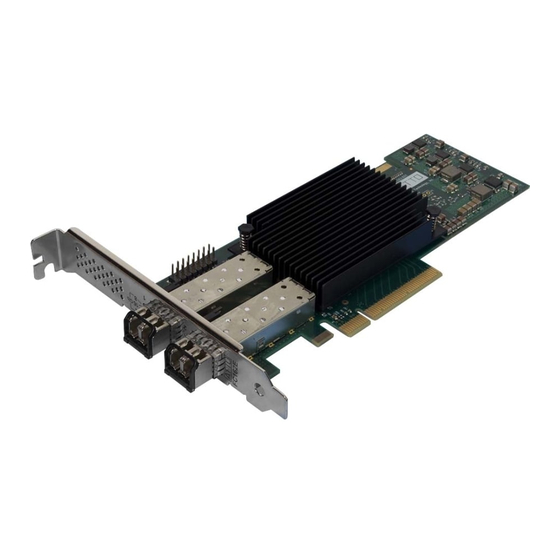Linux
Note
Newer PCs may ship with UEFI firmware
with Secure Boot enabled. With Secure
Boot the operating system boot loaders,
Linux kernel, and all kernel modules must be
signed with a private key and authenticated
with a corresponding public key.
When trying to load an unsigned ATTO driver
on a secure boot system, you will see the
following error: modprobe: ERROR: could
not insert '<driver-name>': Required key not
available
Refer to the Linux driver read me file
(readme.html) contained in the driver bundle
for instructions on signing and authenticating
your ATTO Linux drivers.
1
Power on your system.
2
Log in as root.
VMware ESXi 5
Including driver in boot image
Note
8Gb and 16Gb Celerity support.
VMware vSphere 5 includes the ability to dynamically
construct boot images for your ESXi 5 servers using
vCenter 5. This allows you to include ATTO drivers as
part of a boot image, then using PXE boot you can
start an ESXi 5 host with that image. The end result is
that your server(s) will boot and have ATTO drivers
included without any additional steps. Consult the
VMware vSphere 5 documentation for more
information on this feature.
Driver CD as an Update
Adding an ATTO adapter and installing the driver after
you have installed ESXi 5
1
Download the Driver Bundle, from the VMware
or ATTO website, for the appropriate ATTO
adapter. Unzip the contents of the bundle on
your local workstation. Within the bundle you
3
Verify that the kernel header files, usually
included with the Linux kernel development
package, are installed.
4
Locate the downloaded driver and copy the
driver file to a directory such as /usr/src
5
Open a Terminal session and change to the
directory where you stored the driver.
6
Open your File Browser and browse to
/mnt/cdrom/Linux/Drivers.
7
Click on the driver
8
Copy the driver file to a directory such as
/usr/src.
9
Open a Terminal session.
10 Change to the directory where you stored the
driver.
11 Extract the driver source
Navigate to that directory.
12 Compile and install the driver using ./install.sh.
The driver is now installed and ready to use.
13 Continue on to
Install
will find the Driver VIB file (.vib) for your ATTO
Adapter.
2
Use the Datastore Browser in the vSphere
Client to upload the VIB file to your ESXi host.
Note
Alternatively, you can utilize programs like
WinSCP (Windows) or SCP (Linux) to
upload the file directly to your ESX host.
3
Log in to the ESXi host on the Local Tech
Support Console (ESXi), or through an SSH
client.
4
Install the VIB using the following command on
the ESXi host:
# esxcli software install -v <full path to VIB file>
5
Once the VIB is installed, reboot the ESXi host.
For detailed instructions or driver parameters, please
reference the
Supplemental Guide for VMware
ESX/ESXi.
Hardware.
11

